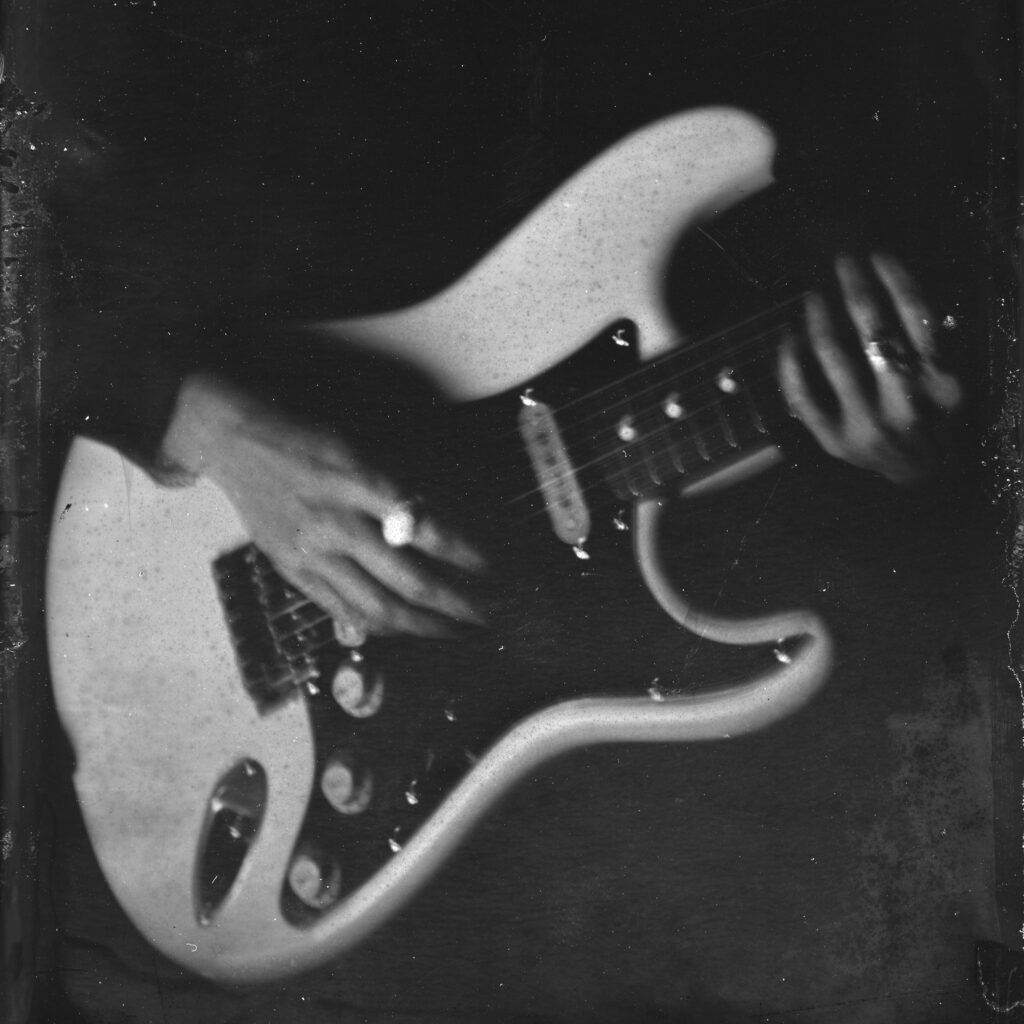
On a sunny Colorado summer day two decades ago, in the tiny mountain town of Granby a couple hours west of Boulder, longtime resident Marvin John Heemeyer drove an armored bulldozer into city hall.
The aggrieved muffler repair shop owner had been secretly building his monster for more than a year when he rampaged through the tight-knit community in a modified Komatsu entombed in concrete and steel. Fueled by grudges against town officials and the local press, the two-hour demolition spree carved a gruesome scar through the modest business district. Heemeyer, who shot himself inside the 85-ton contraption after it plunged through the floor of a hardware store, was the only fatality.
“Twenty years later, I am struck by the ways this all can feel so familiar,” says Madeline Johnston, singer-songwriter behind dreamy experimental pop act Midwife. “My song ‘Killdozer’ was inspired by this story … it is an ode to a city lost in the aftermath of gentrification. Having lived in Colorado for my entire adult life, I have seen the place I love disappear. I have seen my community struggle with attempting to have a voice in decisions. I can understand what would drive a person to take action.”
The first single from Midwife’s aching and serene fourth LP No Depression in Heaven may draw inspiration from that destructive day in Granby — but the song also casts a gaze toward Johnston’s former home of Denver, where she moved for college before rising costs pushed the self-described “heaven metal” musician back to her native Santa Fe four years ago. Sung with mournful reverence over the signature splash of her reverb-drenched guitar, she laments: “There used to be a city here.”
“The Denver I moved to in 2009 seemed to quickly change, even in the first few years,” Johnston told Boulder Weekly in an email interview ahead of her album release show at Bluebird Theater on Sept. 8. “The rapid increase in the cost of living is simply unreasonable, not only for artists, but for everyday people, too.
“In my opinion, Denver’s lost a lot of its core identity,” she continues. “It’s constantly scrambling to invent a new one — a shiny replica of what it used to feel like here.”

‘Chaos and community'
After a few years recalibrating in New Mexico during the early days of the COVID-19 pandemic, Johnston returned to the Centennial State last fall. She bought a home in the more affordable town of Trinidad, a community of about 8,000 anchoring the sleepy southern county of Las Animas. It’s a far cry from the grit and grind of Denver, and the self-described “high-strung” multi-instrumentalist likes it that way.
“I have been enjoying my simple life in my magical small town,” Johnston says. “After leaving the city, I discovered I really didn’t want to be back in that environment, but Trinidad put me close enough to visit whenever I need a dose of it. I’ve been appreciating my space, solitude and quiet.”
Johnston’s time in the Mile High City was an essential step in finding her voice. She began writing her first songs as Midwife while living in a small, windowless room at Rhinoceropolis, Denver’s storied DIY venue that was shut down for code violations following Oakland’s Ghost Ship warehouse fire that killed 36 people in 2016. The nationally renowned creative community in the heart of the then-burgeoning RiNo District is where Johnston says she came into her own as an artist and a person.
“I learned everything about freedom, passion, creativity, chaos and community,” she says. “I experienced such huge moments of love and loss, the big ones that shape you and change you forever. … I can’t really put into words just how special this time in my life was. Ever since I went to my first Rhino show in 2009, I had always wanted to live there. I can’t imagine how different my life would be if I hadn’t been a part of it.”

No depression
Now Johnston returns to the city she once called home to mark the release of her haunting new record. With a batch of seven pristine new songs out this month via gold-standard “dark music” label The Flenser, she says her homecoming is a chance to commune with the ghosts of her past.
“It really is a dream come true to play the Bluebird Theater and celebrate this album release with the community that raised me,” Johnston says.
Regardless of her complicated feelings about the place where she launched her landmark project, the upcoming gig is a full-circle moment for a rising artist who is taking a proverbial bulldozer to her past and starting anew.
This clean-slate approach is right there in the title No Depression in Heaven, borrowing its name from a Carter Family tune popularized during the Great Depression. After Johnston’s own disappearing act, the creative hat-tip to her folk-music forebears takes on a new valence.
“I understand the song to be about the universal struggle of painful existence here on earth,” she says. “It promises a better life to come after death, but at the same time, it’s an honest look at our reality. ‘No Depression in Heaven’ has captivated people for nearly a century, and I think it speaks to the timeless feeling of not belonging here, and wanting to escape this world.”
ON THE BILL: Midwife album release show with DBUK and Polly Urethane. 7 p.m. Sunday, Sept. 8, Bluebird Theater, 3317 E. Colfax Ave, Denver. $33
